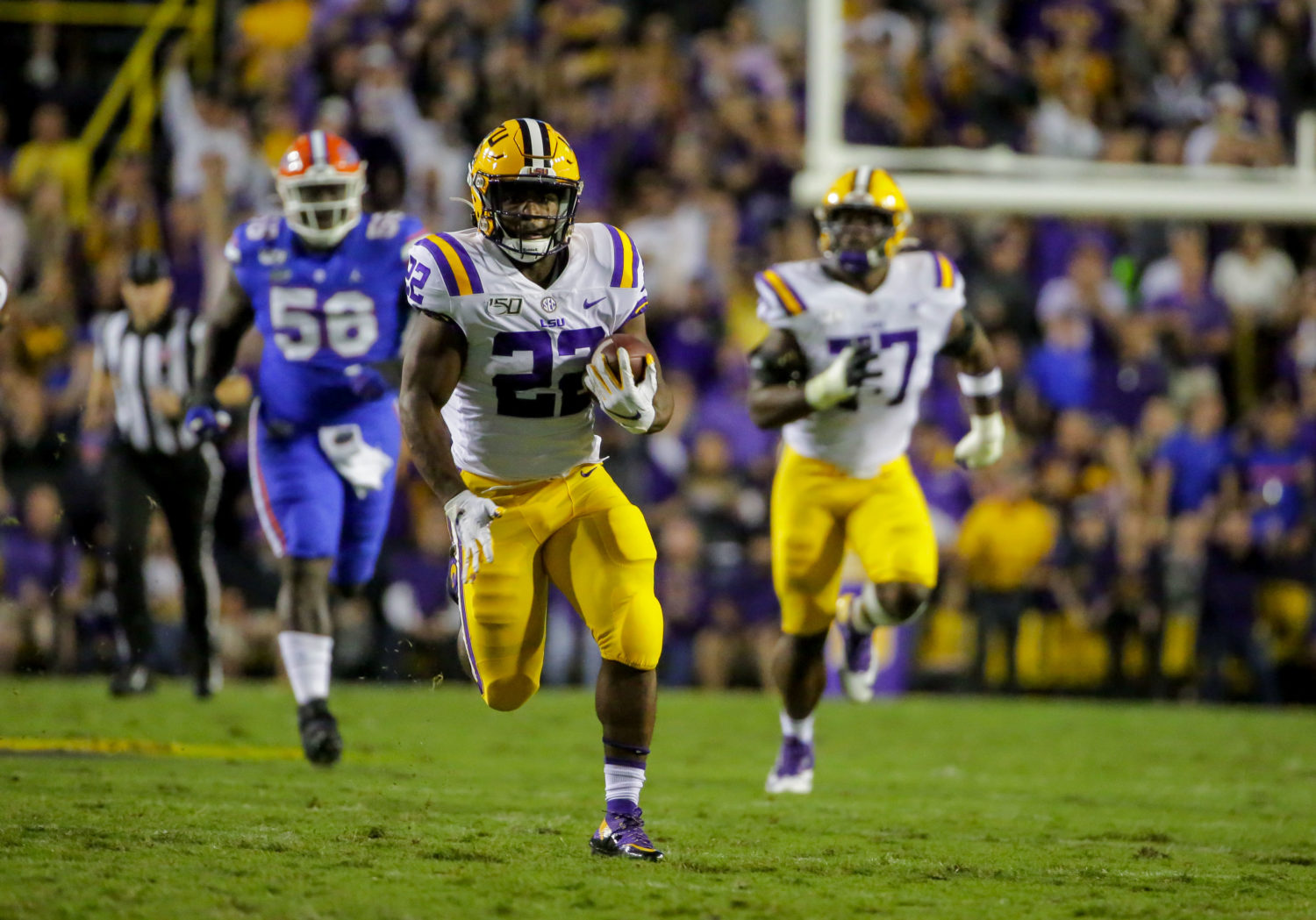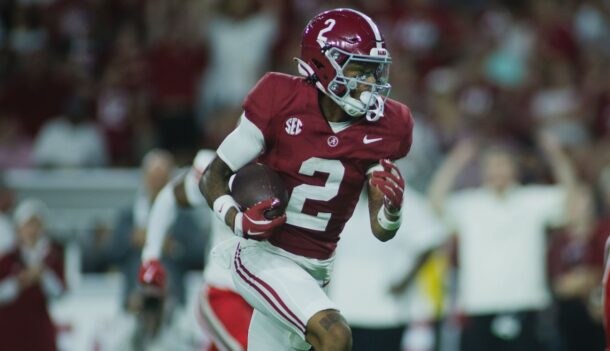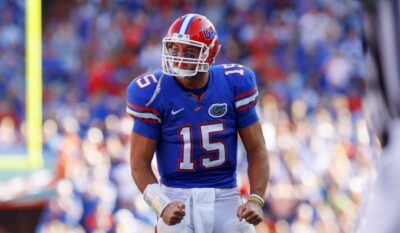
If he can’t play, loss of Edwards-Helaire would be a big blow to LSU
By Les East
Published:
If Clyde Edwards-Helaire is unable to play for LSU against Oklahoma in the Peach Bowl, it would be a significant loss for the Tigers.
It would be much more significant than virtually anyone would have anticipated before this season.
Edwards-Helaire, the Tigers’ leading rusher, suffered a hamstring injury during practice last week, throwing into question his status for the Dec. 28 game. Offensive coordinator Steve Ensminger on Tuesday sounded optimstic that Edwards-Helaire will be ready.
“I do believe we will have Clyde,” Ensminger told reporters. “That’s my opinion.”
Ed Orgeron said Thursday that Edwards-Helaire still hasn’t practiced, and added that he wants him to play and expects him to play.
It’s also fair to wonder, if he plays, how long or how well will he be able to play? Some have even questioned whether LSU should sit him entirely, and let him continue to heal for the national title game. That might sound good in theory, but Edwards-Helaire is a key cog in LSU’s offense.
Edwards-Helaire has rushed for 1,290 yards this season and he leads the SEC with 16 rushing touchdowns. He entered his junior season as the likely but not undisputed leader of a stable of running backs.
Ed Orgeron himself said he planned on using 5 running backs. Edwards-Helaire was joined in that group by senior Lanard Fournette, redshirt freshman Chris Curry and true freshmen John Emery II and Tyrion Davis-Price.
Fournette was a dependable veteran who was especially adept at catching passes out of the backfield, but he left the program during the season after Edwards-Helaire’s emergence left him minimal opportunities.
It was thought that Curry’s experience in the program last season might enable him to carve out a niche even with the arrival of the 2 highly-touted true freshmen. Curry was highly regarded when he entered the program last season, but the emergence of then-senior Nick Brossette into a 1,000-yard rusher as well as the presence of Edwards-Helaire led to Curry being redshirted.
Entering this season, Emery was considered slightly ahead of Davis-Price and therefore the newcomer with the best chance of being a factor and perhaps even surpassing Edwards-Helaire.
But none of that mattered to Edwards-Helaire, who seized control of the running back position, especially the redefined role in the offense created by first-year passing game coordinator Joe Brady.
Brady brought with him the formations he learned as an assistant with the New Orleans Saints. The regular use of 5 receivers required tight ends and running backs who could line up as wide-outs and catch passes.
Edwards-Helaire was a perfect fit. He has caught 50 passes this season. Only Justin Jefferson and Ja’Marr Chase have caught more in the Tigers’ record-setting passing game.
Davis-Price has caught 10 passes, Emery has caught 6 and Curry has caught 2. So Edwards-Helaire’s absence would take away one of Joe Burrow’s favorite targets, though the wide receivers could help the running backs pick up that slack.
But the running game would suffer by Edwards-Helaire’s absence – on the goal line, as a way to keep the Oklahoma defense honest and as a way to keep the ball away from Jalen Hurts and the Sooners’ high-scoring offense.
Edwards-Helaire averages essentially 100 rushing yards per game and 6.5 yards per carry. He has gained nearly 60 percent of LSU’s yards on the ground.
Davis-Price has the next most yards among the running backs with 270, which is 19 yards fewer than Burrow has. Emery has 182 yards and Curry had 99.
The trio of backup running backs have barely half as many touchdowns as Edwards-Helaire – nine compared to 16.
Edwards-Helaire, who is also the Tigers’ primary kickoff returner, has had some of his biggest games against some of the better defenses in some of the biggest games.
He rushed for 134 yards and 2 touchdowns against Florida. He rushed for 136 yards and a touchdown and caught 7 passes for 51 yards against Auburn. He rushed for 103 yards and 3 touchdowns and caught 9 for 77 yards and a touchdown against Alabama.
So the absence of Edwards-Helaire would be a significant loss to LSU in a variety of ways.
And aside from Burrow’s ascension from pretty good quarterback to runaway Heisman winner, Edwards-Helaire’s emergence has been one of the most dramatic in the country.
Les East is a New Orleans-based football writer who covers LSU for SaturdayDownSouth.com. Follow him on Twitter @Les_East.







